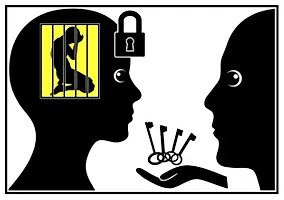Fear of social situations that involve interaction with other people, fear of being negatively judged and evaluated by other people. This is what someone feels when he/she is suffering through social anxiety disorder; it is constantly recurring because it does not just go away on its own. Direct cognitive-behavioral therapy can change the brain and help people overcome social anxiety.
People having social anxiety observed to be shy, quiet, backward, withdrawn, inhibited, unfriendly, nervous, aloof, and disinterested. If they want to make friends, included in groups, and want to get involved and engaged in social relations; they don’t cause it is the fear that holds them back.
Here are some situations that commonly provoke anxiety:
- Eating or drinking in front of others
- Writing or working in front of others
- Being the center of attention
- Interacting with people, including dating or going to parties
- Asking questions or giving reports in groups
- Using public toilets
- Talking on the telephone
Having social anxiety disorder you feel that there’s something wrong, but you don’t know it’s already a sign of illness. Here are the symptoms of having social anxiety disorder:
- High levels of fear
- Nervousness
- Automatic negative emotional cycles
- Racing heart
- Blushing
- Excessive sweating
- Dry throat and mouth
- Trembling
- Muscle twitches
Good news cognitive-behavioral therapy for social anxiety has been evidently successful. Study and clinical evidence alike show that cognitive-behavioral therapy, which must be comprehensive in nature, produces permanent changes in the lives of people. We are qualified to assess both the mental and physical aspects of psychological disturbance visit MidCities Psychiatry today.

